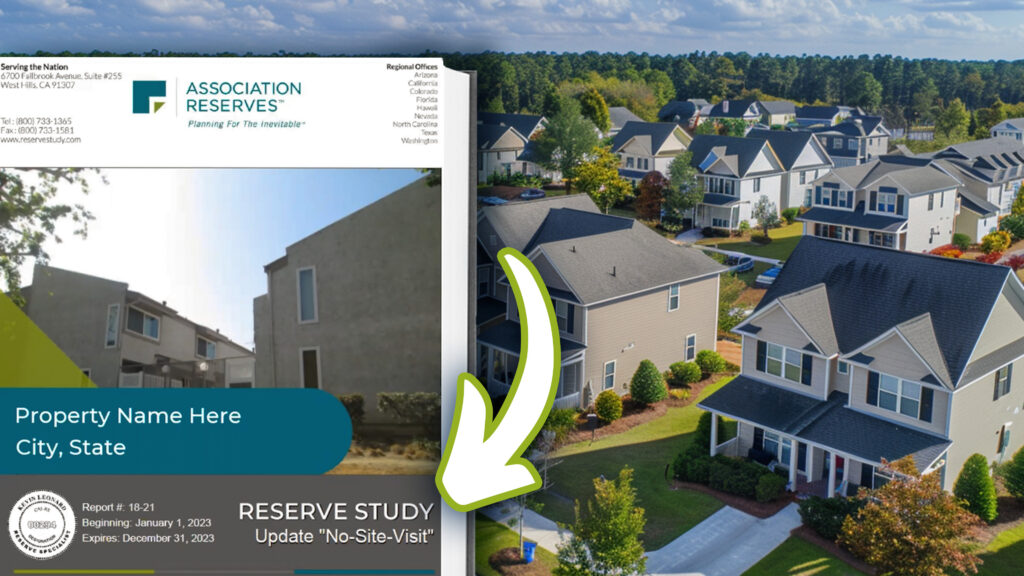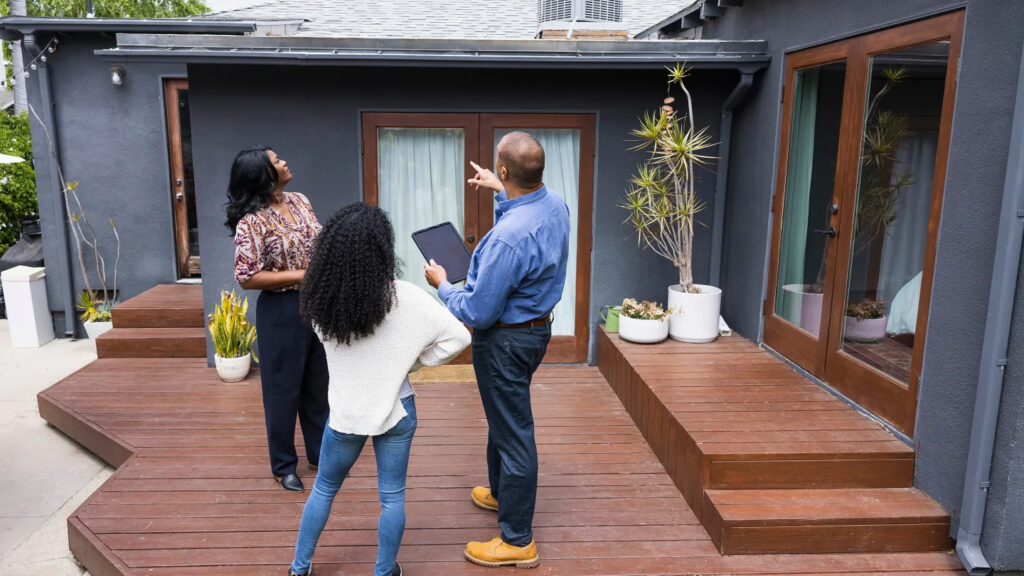All homeowners’ associations face challenges with budgeting for future repairs and replacements. Reserve studies are a crucial tool that help HOAs plan effectively and avoid financial burdens. We’ll show you the true purpose of a HOA reserve study, how to address objections from other board members, and how to get one in the first place.
An HOA without a reserve study is like driving blindfolded. Without one, you likely stumble on unexpected repair costs, special assessments, and frustrated homeowners. A reserve study acts as a roadmap, highlighting future expenses and how you’ll fund each one.
Benefits of a HOA Reserve Study
This is what you get out of a reserve study for your community association:
Informed Decision-Making: A HOA reserve study provides a clear picture of upcoming repair and replacement costs for all your common areas. This empowers your board to make data-driven decisions (rather than a good guess using old numbers).
Financial Stability: By planning for future expenses, HOAs avoid the need for special assessments, which can strain homeowner finances and create tension within the community.
Reduced Insurance Premiums: Some insurance companies offer credits or discounts to HOAs with well-funded reserves, lowering your overall costs. As insurance rates continue to rise nationwide, it’s important to know all the ways you can help lower your cost. Learn how in this episode of our HOA Insights podcast: https://youtu.be/lyNdnS-Hp94
Increased Property Values: Potential buyers appreciate well-maintained communities with a willingness to pay more for the quality of the property. Strong reserves have shown to raise property values and encourage more buyers to make a confident real estate investment.
Addressing Objections from Board Members
Even though getting a HOA reserve study seems like the best thing you could do for your association (and it is), not everyone may agree with you. Here are some common objections fellow HOA board members might raise regarding reserve studies and how you can respond to each:

“We Can’t Afford It”
Reserve studies are typically a small percentage of your annual budget (around 1%). Remember, the cost of neglected repairs and sudden emergencies will be far greater in the long run.
“Fear of the Unknown”
A reserve study doesn’t reveal hidden surprises; it quantifies what you already know is deteriorating. Future repairs ARE coming. The results from your reserve studies help you plan and avoid financial strain from hitting your residents’ pockets all at once.
“We Have to Keep Assessments Lower”
While keeping assessments low is desirable, neglecting proper reserve funding will lead to higher costs for everyone down the road.
“We Already Have a Budget”
Budgets based on past experiences may not account for current inflation and rising costs. A reserve study provides a more accurate and future-proof financial picture, making sure your budget is perfect. With the help of uPlanIt, you can test your budgeting scenarios completely risk-free! Learn more about our interactive budgeting tool for HOAs here.
“It Won’t Change Anything”
A reserve study empowers you to make proactive decisions. You can choose to spread out costs through increased assessments or explore alternative funding options.
How to Get a HOA Reserve Study

- Gather Information: Collect documents like governing documents, maintenance records, and past budgets or financial statements.
- Find Qualified Reserve Study Professionals: Look for reputable reserve study providers with experience in your HOA’s size and property type. Find firms with reserve specialists (RS) or professional reserve analysts (PRA) designations. Ask for referrals and check credentials.
- Request Proposals: Outline your needs and compare proposals from several reserve study providers. Consider factors like qualifications, experience, and cost.
- Conduct Interviews: Schedule interviews with providers to discuss their approach and give them an opportunity to answer your questions to see if they’re the right fit for your community.
- Make a Decision: Choose the provider that best suits your HOA’s needs and budget. Consider experience, expertise, cost, and the level of service offered (full study, update with/without site visit). If you haven’t had a reserve study done, you’ll likely be getting a Full Reserve Study.
- Provide Support: Next, you’ll assist the chosen reserve study firm by providing access to locked areas, relevant documents, and historical cost data as they conduct their evaluation of your property!

Reserve studies are essential tools for any HOA. They provide valuable points of focus and planning, promote financial stability, and contribute to a well-maintained community that everyone can be proud to live in. By understanding the benefits and addressing potential objections, you as the HOA board member will make informed decisions about getting a reserve study and plan properly for the future.
Want Association Reserves on your team? Get a reserve study proposal from one of our reserve specialists here!

